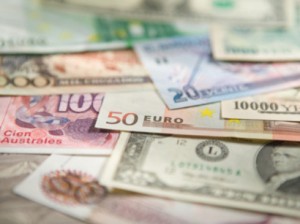 The United States Treasury has issued a new explanation for the shortage of medical drugs and equipment in Iran. They claim the Iranian government is intentionally trying to exploit the problem for political purposes. A senior US Treasury official recently pointed to just-released US International Trade Statistics (USITS) to support this claim, arguing that while these figures show falling medicine exports to Iran, the export of wheat has gone up, therefore, Iran could use whatever banking it used for the wheat to procure medicine.
The United States Treasury has issued a new explanation for the shortage of medical drugs and equipment in Iran. They claim the Iranian government is intentionally trying to exploit the problem for political purposes. A senior US Treasury official recently pointed to just-released US International Trade Statistics (USITS) to support this claim, arguing that while these figures show falling medicine exports to Iran, the export of wheat has gone up, therefore, Iran could use whatever banking it used for the wheat to procure medicine.Not really. At least the data that�s being referred to proves no such thing.
The USITS data showed a drop from $31.2 million to $14.8 million in US pharma exports from the US to Iran between 2011 and 2012. These figures are highly misleading and seriously discount the scale of the problem. I checked the sales figures of a single large US pharmaceutical company (on the conditional of anonymity) with the person in charge of them out of Dubai. Well, this American company alone experienced a drop of sales to Iran from around $50 million to $20 million during the same time period.
The USITS data simply shows what goods left the US directly for Iran. This is while the US pharma company is likely to have supplied Iran with drugs from a manufacturing or storage facility in Europe, Dubai or Singapore.
The food figures are just as inconclusive. Sure, they went up because of an $89 million sale of wheat in 2012. Keep in mind that $89 million is nothing; it�s peanuts for a country that often imports over $1 billion of wheat. Such a figure probably amounts to one or two single orders at best. When did that take place? Early 2012, before the tightening of sanctions? Was it part of the $1.4 billion Shell-Cargill deal allowing Shell to pay its debts to Iran by crediting Iran�s account with Cargill (if that actually went through?).
All in all, the trade figures of the USITS are irrelevant to the debate at hand.
There are many arguments among pundits when it comes to the overall effectiveness of sanctions against Iran and whether or not they will ultimately persuade decision-makers in Tehran to change their nuclear policies.
But the effect of sanctions on the shortages of medical equipment and drugs in Iran is much easier to assess. Talk to the people in charge of the Iran account among the American and European pharma companies and ask them where the problem is. It�s not that hard to understand: these companies need to get paid and banking channels are very limited while Iran has a shortage of hard currency (I mean Euros and Dollars, not Rupees and Yuan); therefore, the amount of trade is curtailed. Perhaps the fact that only one international bank remains willing to brave the wrath of US sanctions � even though we are talking about fully legal trade under humanitarian exemptions � lends further testimony to where the main problem exists.
Let me be perfectly clear: sanctions are�not�the sole problem here. The Iranian government deserves stern criticism for its maladroit handling of the shortages of medicine and medical products. It must dramatically improve its foreign currency allocation competence and transparency, as well as governance of the sector, and it must crackdown on corrupt practices.
However, the Iranian government alone cannot solve the issue of Western medicinal shortages. Sanctions are a major impediment and unless Washington and Brussels rethink the humanitarian waivers � specifically by removing the banking bottleneck and allowing Iran to convert some of the money it earns from oil sales to Euros and Dollars for the narrow purpose of clearing trade debt related to medical drugs and equipment � this problem is going to get worse, not better.
A�recent study�that a group of independent consultants conducted for the Wilson Center explains this issue�s various complications and their solutions in more detail.
By Lobelog
The Iran Project is not responsible for the content of quoted articles.










